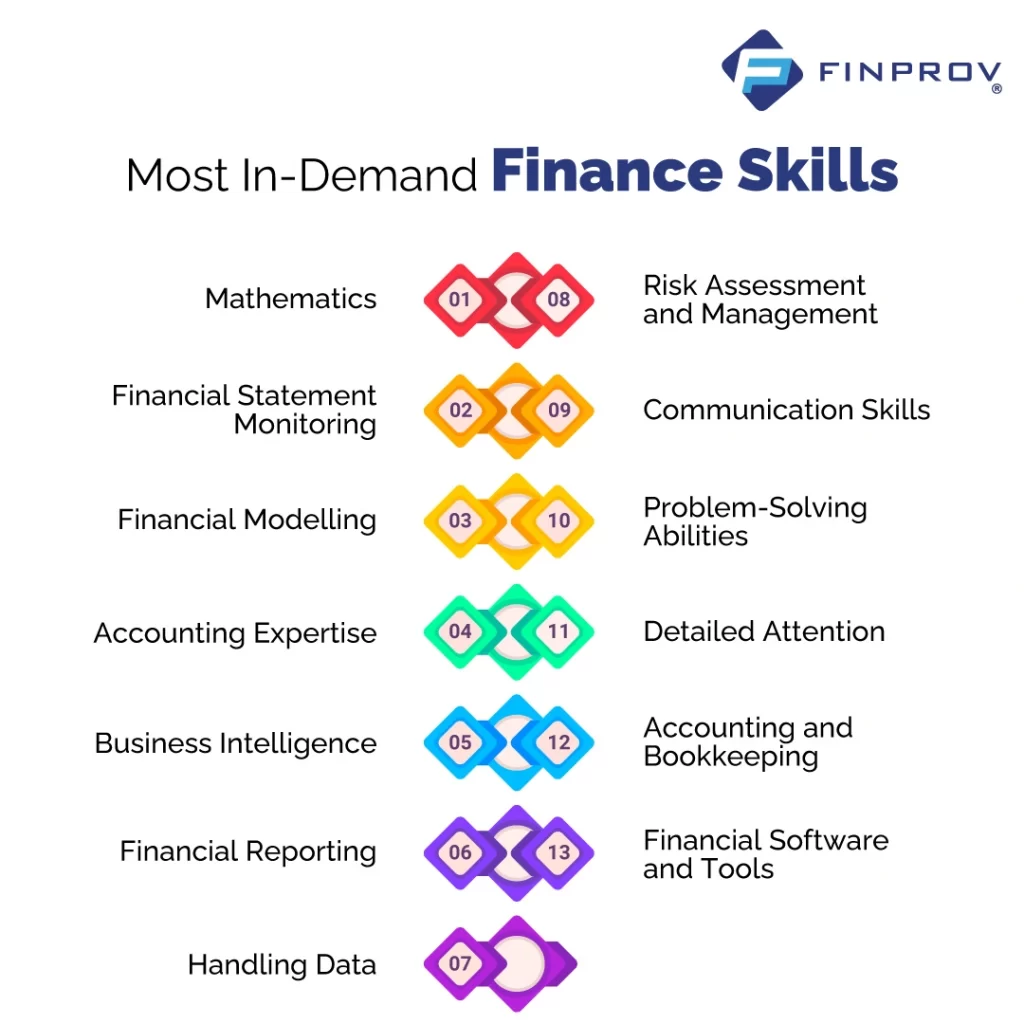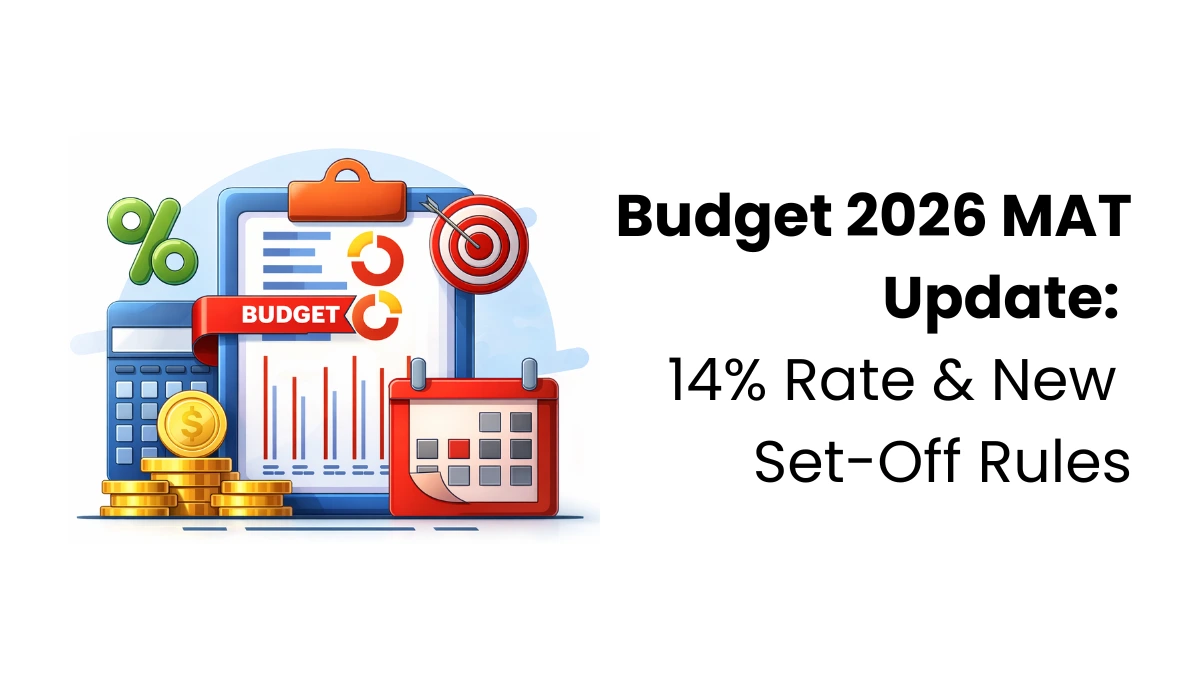In the continuously changing business world, can we ignore the importance of finance professionals? They play a vital role in the organization, but what makes them important in the finance sector? To stay ahead in the finance sector, you have to learn the right skills. If your goal is to get a job as a financial analyst, work in a bank, or start your career in corporate finance, then having the right skills is important.
Why are Finance Skills Important?
The finance industry is well-known for its fierce competition, and employers are looking for candidates who have a diverse and strong skillset. There is a rise in demand for professionals who have specialised skills. The advances of technology, automation, and data analysis are also shaping the financial landscape at a fast rate.
To stay relevant in this changing industry, finance professionals must learn the necessary skills to navigate and adapt to these changes. To become successful in this finance sector, you have to adapt, keep up with industry trends, and develop skills in the newly emerging technologies to stay competitive.
Most In-Demand Finance Skills You Need to Acquire
To excel in this finance sector, the finance professionals should develop top skills:

Mathematics
For any finance role, a solid understanding of mathematics is very important. Whether it is data administration or financial analysis, skills in mathematics are essential to accurately analyze and interpret the financial data.
Financial Statement Monitoring
Effective cash flow management is crucial for making successful investment decisions, expanding into new markets, and developing long-term plans. Proficiency in monitoring financial statements enables professionals to manage cash flow efficiently, mitigate financial loss, and make informed strategic decisions.
Financial Modelling
Financial modelling uses abstract techniques to represent real financial situations. It helps analyse the financial performance of portfolios or assets over specific time frames. Financial modelling is essential for strategic planning, such as estimating project costs and evaluating potential outcomes. Additionally, a thorough knowledge of the stock market is vital for making accurate financial decisions.
Accounting Expertise
Strong accounting skills are an important factor for handling financial transactions efficiently. They also play an important role in performing different tasks such as financial analysis, financial reporting, data management, and financial modelling. There is a high value for the candidates who have accounting abilities, so having a basic understanding of accounting can help to improve possible career opportunities.
Business Intelligence
The finance professional plays an important role in making business decisions. They should be able to analyse and forecast future trends to make informed decisions. Having the knowledge on how to use software like Oracle or SAP, which are used for inventory management and future purchase planning, is valued by employers. Also, having knowledge about data visualization tools helps professionals to present data-driven tasks to the senior management effectively.
Financial Reporting
To present an organization’s financial position to the shareholders, developing skills such as financial management, balance sheet, and income statement are important. The financial reporting includes organizing the valuable skills that are suitable for assessing the financial health of a company. Similar to accounting expertise, proficiency in financial reporting is a valuable skill for advancing in a finance career.
Handling Data
Effective data management is very important when using the data in the lead and regulatory compliance, business operations, and in everyday life. Experienced data management can help individuals, groups, businesses, and society to see the data for different purposes. They also make sure that they can easily access and use this data for financial and predictive services.
Risk Assessment and Management
Risk assessment and management skills are another important skill for finance professionals. They play a responsible role in managing the potential risk factors and implementing the financial stability and performance of the organization. By learning different risk factors and implementing the risk-solving strategies, the finance professionals can contribute to the success of any organization.
Communication Skills
Confirming the status of financial information with the shareholders is important. They need to clearly and concisely communicate their findings, recommendations, and insights. Strong verbal and written skills are required. The communication skills can also help to build relationships, collaborate with the team effectively, and present this information to decision makers.
Problem-Solving Abilities
The financial professionals often face complex economic challenges that require analytical thinking and creative solutions. With strong problem-solving skills, these professionals can identify different issues, analyse root causes, and create strategies to address them, and with the problem-solving skills, the issues can be easily solved.
Detailed Attention
Having detailed attention is another important skill that is required in the financial sector. Finance professionals must be extremely careful and accurate in their work, even if it is financial analysis, data management, or reporting. You have to pay close attention to the numbers, calculations, regulatory requirements, and the financial professionals must make decisions based on accurate data.
Accounting and Bookkeeping
Being proficient in accounting and bookkeeping principles is important for finance professionals. These skills include an understanding of financial statements, recording transactions accurately, and ensuring compliance with accounting standards. Having a strong knowledge of accounting principles can help maintain the financial health of theorganizations and make informed decisions.
Financial Software and Tools
In the continuously evolving technology landscape, having more proficiency in finance softwares and tools is important for finance professionals. They should also be equipped to use different accounting softwares, financial modelling tools, data analysis platforms, and other relevant technology solutions. By using these tools, professionals can streamline different processes, automate the tasks that are repeatedly done, and get more insights from the financial data. Also, keeping up with the latest financial softwares and tools is important for improving productivity and efficiency in financial operations.
Expertise in Automation
As AI is continuously adapting to the finance operations. The finance professionals who use and oversee these technologies can improve efficiency in many areas, such as accounts payable (AP), payroll, and other financial processes. This ability to automate can save a lot of time and help finance leaders think more forward.
In any business, finance is important, and it can affect many areas of an organization. They show the overall health and the performance indicators of different departments within an organization. Finance is the actual base that helps businesses to flourish and become successful.
Conclusion
In the evolving finance field, staying ahead means learning both technical and soft skills. The most in-demand skills include risk management, communication, financial handling, a growing focus on changing technologies, automation, management skills, and more. By getting these skills, the finance professionals can contribute more to the growth of the organization and future-proof their careers in this continuously changing field. So learning and adapting to these new skills is important.
At Finprov learning, we offer a wide range of accounting courses that help equip learners to get skilled and excel in their careers. Our courses include CBAT, PGBAT, PGDIFA, Income Tax, Practical Accounting Training, DIA, GST, SAP S/4HANA FI, SAP S/4HANA MM, Tally Prime, MS Excel, and more. These courses include important topics and provide a complete understanding of the accounting principles and different practices.
We are committed to providing the best and most effective practical training that aligns with the industry standards. To get this top-level achievement, our faculty includes industry experts with years of experience who bring their knowledge and different experiences to the classes. This makes sure that our learners get the top relevant and up-to-date instructions that can help to prepare them for top accounting careers.
FAQs
Q1. Which financial skills are in demand?
Some of the in-demand skills in the finance field include financial modelling, risk assessment, management, reporting, accounting expertise, and proficiency with different financial softwares and tools. As the technology is advancing, having skills in automation and artificial intelligence is also becoming important.
Q2. What technical skills should you put on a resume for finance?
It is important to show your technical skills, such as knowledge of different accounting softwares and tools, and automation technologies. Also, include your expertise in areas such as financial reporting, accounting, and forecasting.
Q3. Which finance skills are in demand for freshers?
In the case of freshers, employers look for the basic skills in accounting, financial analysis, business intelligence, and communication. Additionally, a basic understanding of financial software, Excel, and an eagerness to learn new tools like AI and automation can help boost a fresher’s profile.
Q4. How to improve my communication skills in finance?
To improve your communication skills, you should focus on practising your presentation in a clear and concise manner, writing skills, and learn to use data visualization tools.
Q5. Why is financial modelling important in finance careers?
Financial modelling is an important skill for checking the financial performance, forecasting trends, and making decisions. It can help to calculate the potential outcome of different business scenarios, which makes this skill more valuable in jobs in sectors like corporate finance and investment banking.










